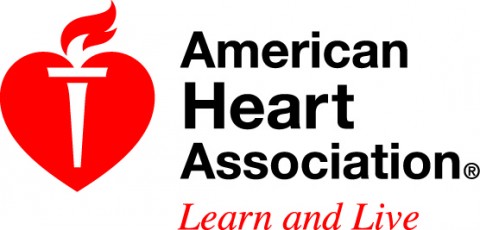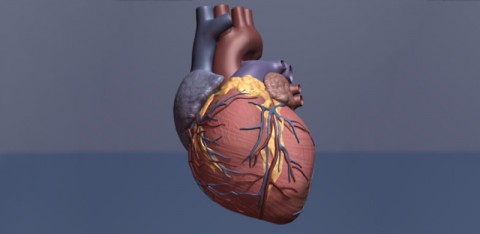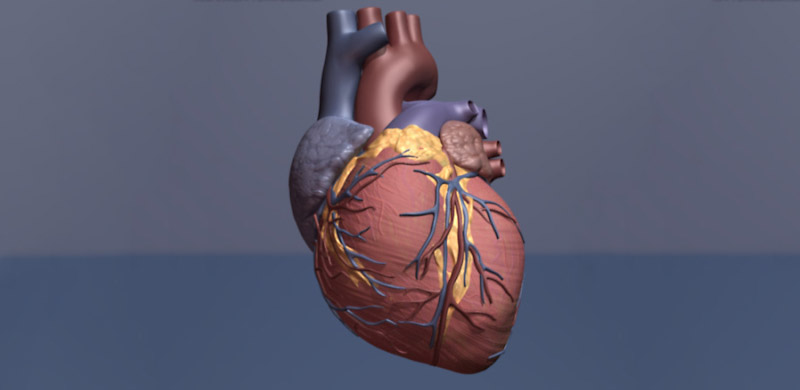American Heart Association/American College of Cardiology Clinical Performance and Quality Measures
 Washington, D.C. – A new report presents 10 quality and performance measures that are intended to help stakeholders—including health systems, legislative bodies, and nongovernmental organizations, as well as healthcare practitioners, patients, families and communities—in the effort to prevent sudden cardiac death.
Washington, D.C. – A new report presents 10 quality and performance measures that are intended to help stakeholders—including health systems, legislative bodies, and nongovernmental organizations, as well as healthcare practitioners, patients, families and communities—in the effort to prevent sudden cardiac death.
The joint report from the American College of Cardiology and the American Heart Association is published online today in the Journal of the American College of Cardiology and Circulation: Cardiovascular Quality and Outcomes.

The two phrases are often used interchangeably; however, sudden cardiac death should only be used to describe fatal events.
“This is the first comprehensive measure set in the area of sudden cardiac death prevention,” said Sana Al-Khatib, MD, FACC, co-chair of the writing committee and professor of medicine at Duke University. “Our vision is that these measures will be developed, tested, and implemented in clinical practice and that implementation will improve patient care and outcomes.”
In the United States, approximately 356,500 out-of-hospital cardiac arrests occur each year. Many of the sudden deaths occurring in the United States may be prevented by implementing evidence-based and guideline-endorsed recommendations for primary or secondary prevention of sudden cardiac death. However, sudden cardiac death can occur in people who do not appear to be at risk for this outcome and accurate risk stratification is not achievable in most people.
“While some people—such as patients with heart failure—are known to be at risk of sudden cardiac death, others are not. We need initiatives to improve the quality of care for those with a known risk, but also for the victims of sudden cardiac arrest,” Al-Khatib said.
Sudden cardiac arrest is one of the leading causes of death in the United States. Even when a patient survives, the condition may have a devastating impact on the patient’s quality and length of life. This clinical outcome also imposes a heavy economic burden through healthcare costs.
Although guidelines exist for the prevention of sudden cardiac death, there has been an underutilization of public health initiatives, treatments and device therapies for at-risk patients. The writing committee attempted to identify performance measures that can assess the quality of care for the prevention of sudden cardiac death. Although sudden cardiac arrest and sudden cardiac death can affect people of all ages and demographics, the performance measures focus on adults. No limitations or restrictions for other demographics, such as sex, race/ethnicity, or socioeconomic status, were applied.
The performance measure set is intended to assist clinicians and help them provide better care for their patients at risk of sudden cardiac arrest and thereby to improve care and outcomes.
Performance and Quality Measures for the Prevention of Sudden Cardiac Death
- Smoking cessation intervention in patients who suffered sudden cardiac arrest, have a life-threatening ventricular arrhythmia, or are at risk for sudden cardiac death
- Screening for family history of sudden cardiac death
- Screening for asymptomatic left ventricular dysfunction among individuals who have a strong family history of cardiomyopathy and sudden cardiac death
- Referring for cardiopulmonary resuscitation (CPR) and automated external defibrillator (AED) education those family members of patients who are hospitalized with known heart conditions that increase the risk of sudden cardiac arrest
- Use of implantable cardioverter defibrillators (ICDs) for prevention of sudden cardiac death in patients with heart failure and reduced ejection fraction who have an anticipated survival of more than one year
- Use of guideline-directed medical therapy for prevention of sudden cardiac death in patients with heart failure and reduced ejection fraction
- Use of guideline-directed medical therapy for prevention of sudden cardiac death in patients with heart attack and reduced ejection fraction
- Documenting the absence of reversible causes of ventricular tachycardia/ventricular fibrillation cardiac arrest and/or sustained ventricular tachycardia before a secondary-prevention ICD is placed
- Counseling eligible patients about an ICD
- Counseling first-degree relatives of survivors of sudden cardiac arrest associated with an inheritable condition about the need for screening for the inheritable condition
About the American College of Cardiology
The American College of Cardiology is a 52,000-member medical society that is the professional home for the entire cardiovascular care team. The mission of the College is to transform cardiovascular care and to improve heart health. The ACC leads in the formation of health policy, standards and guidelines.
The College operates national registries to measure and improve care, offers cardiovascular accreditation to hospitals and institutions, provides professional medical education, disseminates cardiovascular research and bestows credentials upon cardiovascular specialists who meet stringent qualifications.
For more, visit acc.org.
About the American Heart Association
The American Heart Association is devoted to saving people from heart disease and stroke – the two leading causes of death in the world. We team with millions of volunteers to fund innovative research, fight for stronger public health policies, and provide lifesaving tools and information to prevent and treat these diseases. The Dallas-based association is the nation’s oldest and largest voluntary organization dedicated to fighting heart disease and stroke.
To learn more or to get involved, call 1-800-AHA-USA1, visit heart.org or call any of our offices around the country. Follow us on Facebook and Twitter.



